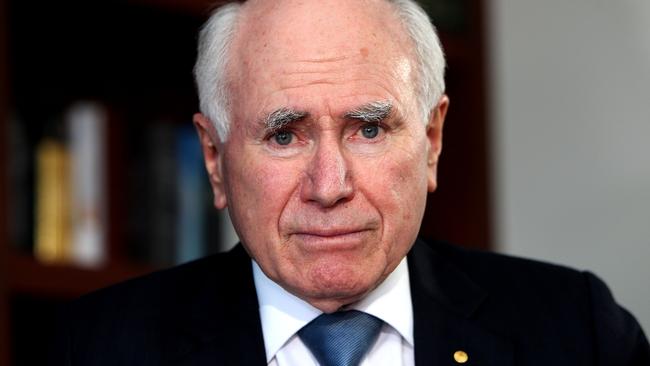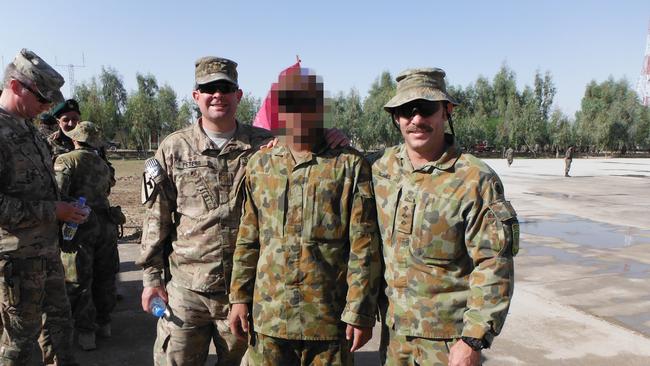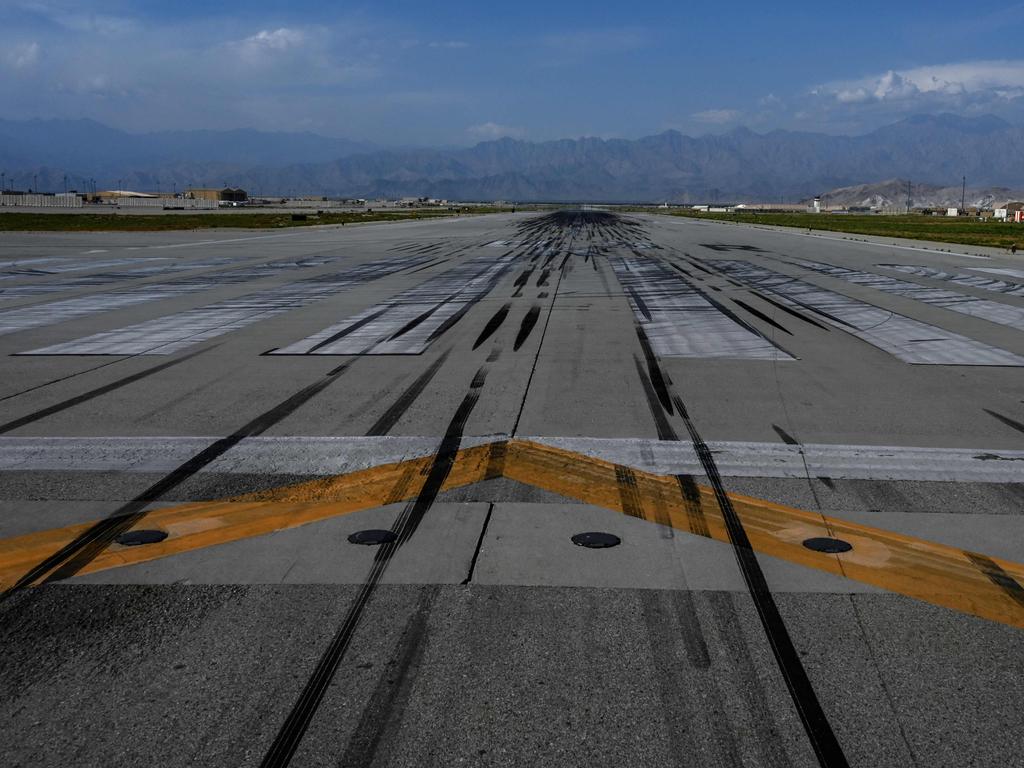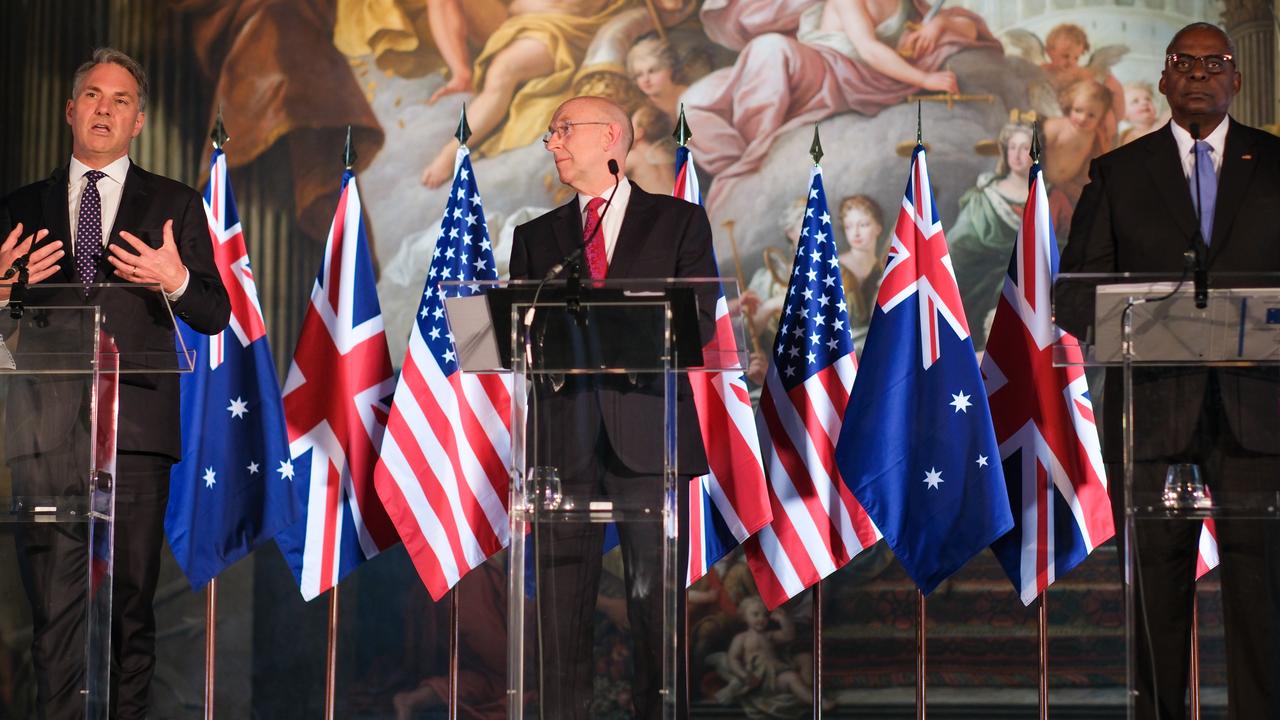We can’t abandon Afghans, John Howard says
John Howard says the country has a ‘moral obligation’ to provide asylum to Afghans who worked with Australian troops.

Former prime minister John Howard says the country has a “moral obligation” to provide asylum to Afghans who worked with Australian troops, declaring their fate must not be decided by “narrow legalism” as they face near-certain death from a resurgent Taliban.
Hundreds of Afghan interpreters, aid workers and security guards who worked for the Australian government during the two-decade conflict have been left in limbo, including many with multiple character references from ADF personnel.
They include a former Afghan interpreter, known as Hassan, who is still waiting for a decision on a humanitarian visa 14 months after the Federal Court ordered Home Affairs to process his application.
Others, including subcontracted aid workers and security guards, are being denied the opportunity to apply for the Locally Engaged Employee refugee visa because they were not directly engaged by the Australian government.
Mr Howard, who committed Australian troops to Afghanistan in 2001, said the nation needed to urgently help those who risked their lives for Australia, and their immediate family members.
“It was a moral obligation that we shamefully discarded many years ago when we pulled out of Vietnam, and I do not want to see a repetition of that failure in relation to Afghanistan,” he told SBS.
“I don’t think it’s something that should turn on some narrow legalism.”
Hassan, who is living in hiding with his wife and young family, had his leg broken in three places when he was hit by a car in a 2016 assassination attempt, and recently received a written Taliban death threat over his work for the ADF from 2010 to 2013.
The full bench of the Federal Court granted Hassan’s appeal in May last year after an earlier ruling denying him a visa on character grounds.
The court found he had been denied procedural fairness, with insufficient weight given to the risk faced by his wife and children if the family remained in Afghanistan.
Home Affairs Minister Karen Andrews declined to comment on Hassan’s case, which has dragged on for eight years and has now become desperate as the Taliban accelerates its advance towards major cities.

Former army captain Jason Scanes, who worked closely with Hassan in Afghanistan, said he had been a highly trusted ADF employee and faced death unless he and his family were allowed to settle in Australia.
“This is an interpreter who worked in intelligence. He could live on base and eat in our mess,” Mr Scanes said.
“He’s endured two Federal Court cases, has numerous character references from senior Defence personnel, and has been certified by Defence as ‘at significant risk of harm as a result of his service’.
“If he can’t make it, what hope does any of the other interpreters have?”
Hassan told Mr Scanes in a recent text: “You have fully supported my case, stood for me and knocked in every single door. But why I am still left behind?”
The court heard former home affairs minister Peter Dutton had ruled Hassan “had an association with the Taliban involving some sympathy with its suspected criminal activities”.
But Mr Dutton also accepted that if he remained in Afghanistan, he had “a legitimate fear for his safety as a direct result of his former employment for the coalition forces”.
One of the appeal judges observed it was a paradox that he could be both a Taliban sympathiser and in fear of losing his life from the insurgents.
One of his character referees, Captain James Murch, said in statutory declaration that Hassan “provided valuable support to me and my staff working in intelligence with the 205 Corps”.
“I found him to be a straightforward and honest individual who because of his employment had to take steps to protect his identity whilst out in the local community for fear of retribution.
“I find it interesting that it has been inferred that he may have had associations with anti-coalition agencies or individuals as he was subjected to a clearance check by US intelligence force … which I was part of as his sponsor.
“The checks were extremely thorough. His phone was screened, his family and contracts screened, and any associations scrutinised so he could continue to work as an interpreter.”
Hassan’s lawyer, Stephen Lawrence, said security assessments of Afghan support staff undertaken amid the “chaos and dysfunction” of coalition operations, could not always be relied on. In a letter to Mr Dutton in September last year, Mr Lawrence said Afghan interpreters “often have familial and social connections which compromise them and make it difficult to be completely upfront in security screening processes”.
“This by no means suggests they are a threat to security or even sympathetic to the Taliban.”
Mr Lawrence told The Australian: “The idea that he is some sort of Taliban plant who poses a risk to national security is frankly laughable.”
There are an estimated 200 Afghan interpreters who worked for Australian forces waiting on humanitarian visa applications to resettle in Australia, or contesting adverse rulings.
About 50 Afghan aid workers who were heavily involved in Australian-led projects, along with 100 security guards, have been barred from applying for Locally Engaged Employee refugee visas on the grounds that they were not directly employed by the Australian government.
The Australian revealed this week that Foreign Minister Marise Payne ruled out a LEE visa application by an Afghan aid worker who helped deliver a $6.7m AusAID infrastructure project because he was employed through a subcontractor.
Lawyer Glenn Kolomeitz, who represents dozens of Afghans seeking LEE visas, said the bureaucracy involved in the process “will cost lives … both Defence and DFAT have public service teams pushing out reams of paperwork requiring an almost impossible response by Afghan applicants.”





